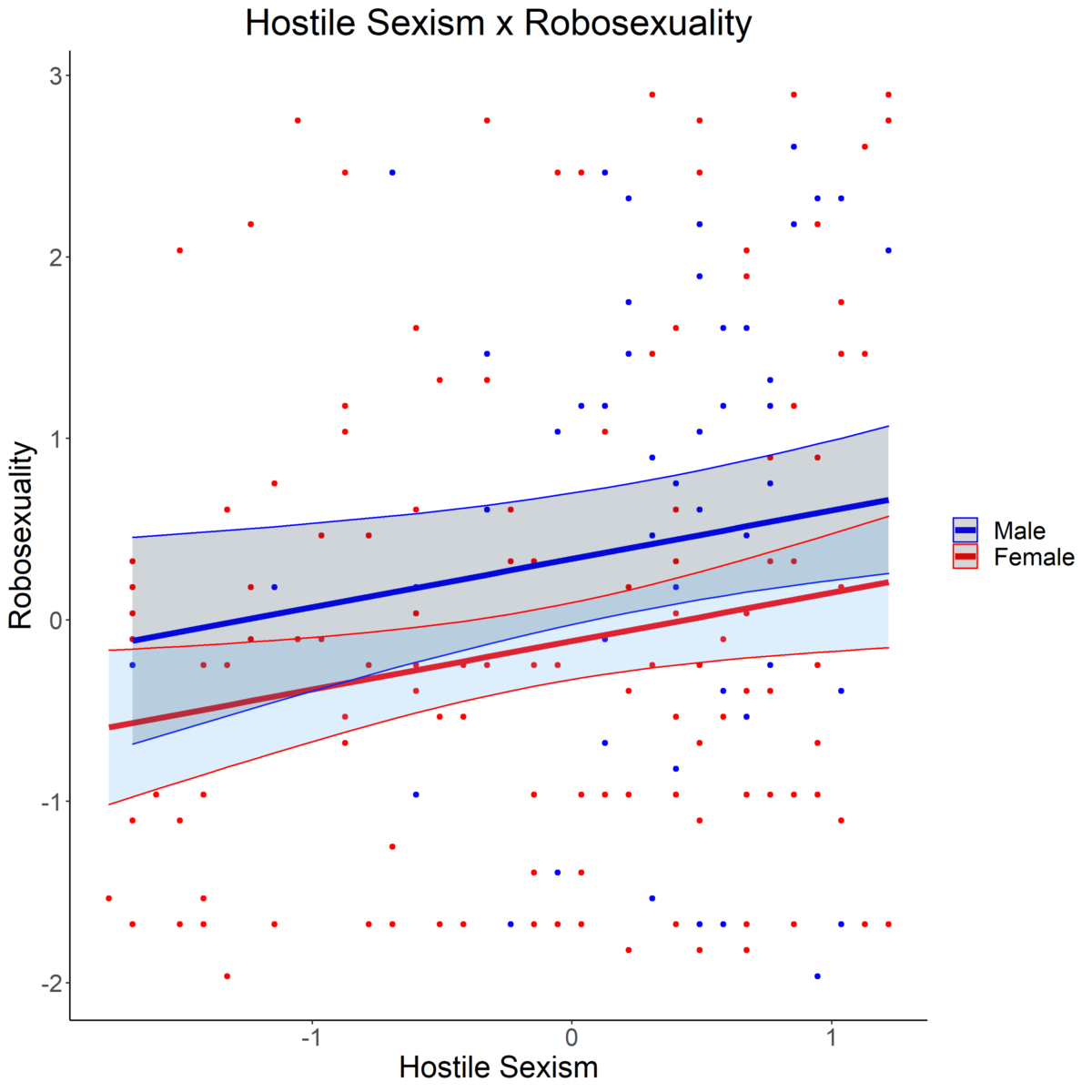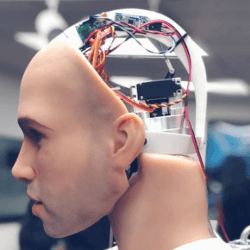Men with Hostile Sexist Beliefs More Likely to Desire Sexbots: Study
Interest in objectifying women may lead people to objectify robots for sexual gratification.

How closely tied are sexist beliefs and the desire for sex with robots?
As a researcher at the University of Victoria in Canada, I examined this relationship between sexism and interest in sexual relations with robot in a study of 223 undergraduate students.
The sample was 75% women and had a median age of 20 (mean age of 21.5). Most participants were either Caucasian or Asian.
The study revealed several key findings, including men’s higher tendency to hold sexist views toward women and robosexuality.
Hostile sexism and robosexuality
We defined and measured hostile sexism based on harmful and antagonistic beliefs someone may hold toward the status of women. Examples of this might be someone’s belief that “women are not funny,” or that “women can only achieve high-status positions through affirmative action.”
Hostile sexism sets itself apart from the concept of benevolent sexism. While views that fall under the latter category remain restrictive or based on harmful stereotypes, they tend to be more prosocial and positive in feeling, at least in the eyes of the person who holds them. For more details, you can access the original measure as explained by Peter Glick and Susan T. Fiske in the paper The Ambivalent Sexism Inventory: Differentiating Hostile and Benevolent Sexism [pdf]
Regarding our findings, first, we found that men were considerably more sexist than women toward women.
Second, we discovered that the level of male participants’ sexism was directly related to robosexuality: the desire to have sex with robots. Men who scored higher for sexism were more interested in sex with robots compared to men who scored lower for sexism.
Additionally, men were more interested in sex with robots compared to women.

The role of science fiction
Unsurprisingly, popular culture may play a significant role in the relationship between sexism.
The research found that robots that are partners in science-fiction media are often women. If someone who imagines a robot partner imagines a female robot, and that person happens to be sexist toward women, then they would probably be more interested in such a partner. They might want to objectify such a partner, and as many people view robots as objects, having a robot partner comes with the opportunity to objectify with no outside judgment.
Sexism isn’t a prerequisite for an interest in sex robots
What might this mean in the grand scheme of things?
Men who are more sexist might be more interested in sex robots than women, but this does not mean that one must be sexist to want a sex robot. Additionally, it does not mean that all people who like sex robots are sexist.
Rather, it suggests that people who are sexist may have an interest in objectifying women, and that that interest may also lead to an interest in a sex robot that one can use for their own gratification.
Additional research is needed
There are likely many more reasons than sexism that people are interested in sex robots. For example, people who are open to new experiences may be more interested in robots than people who aren’t.
To learn more, however, more researchers must engage with these questions. One way to learn more about this type of research is by attending certain annual events where robot research is showcased.
This year’s International Congress on Love and Sex with Robots (LSR), which took place on Zoom in mid-August, featured new research on robots: including advancements in robo-technology; the future roles they may play in society; and the way they are perceived by the general public. By supporting this type of research, we can continue providing these insights and supporting the field of robot partnership overall.
Image sources: Connor E. Leshner, vulcanostraga

















